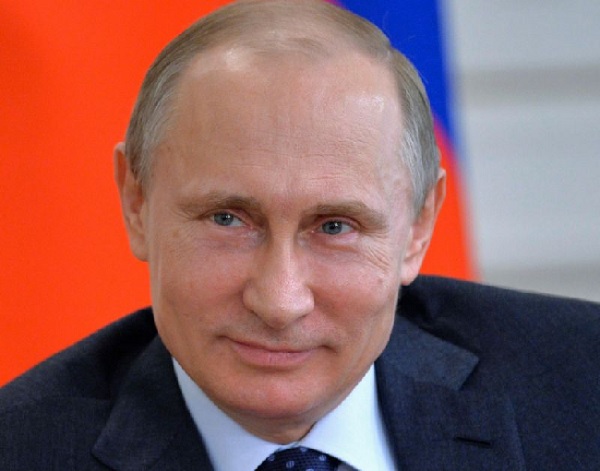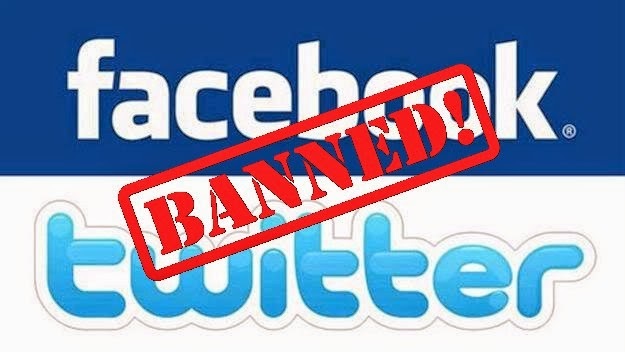“If we [U.S] treat Russia seriously as a great power, we [U.S] need at an early stage to determine whether their concerns can be reconciled with our necessities.” These were the words of Former US Secretary of State Henry Kissinger in an interview.
U.S – Russian relations have found the word war even if it’s “cold”, apart from the other fronts U.S have been dominating in the social web and internet. This made Russia to ban “Western Technology Firms” like Facebook, Gmail and Skype.
America has made quite a use of the technology to gain support and convince people to their point of view; Well now Russians are following that path..
The Russian government is waging a campaign at home to gain support of hearts and minds over Syria, using social networks to boost support for its military campaign for backing Syrian President Bashar al-Assad.
Since Russia began its air war on Sept. 30, Russian military has released a stream of flashy videos online showing warplanes dropping bombs and missiles on ground targets in Syria. Within hours of the first airstrikes, the Defense Ministry had posted footage on Facebook of bombing runs, collecting thousands of shares and likes.
Russia says it is carrying out accurate strikes to avoid hitting civilians—Kremlin spokesman Dmitry Peskov on Monday called reports of civilian casualties a “newspaper hoax” meant to discredit Russia.
Indeed, the images released show a professional, sanitized vision of war, emphasizing Russia’s ability to wage high-tech warfare. The videogame-style designed footage appears to attract young, Internet-savvy Russians. On VKontakte, Russia’s most popular social network, users shared the footage and praised Russia for rescuing Syria and the world from the threat of ISIS.
The social-media campaign in Russia appears particularly well-suited to reach out to new generation who became adult after the collapse of the Soviet Union and for whom Vladimir Putin has always been Russia’s figurehead, either as president or prime minister.
The online posted comments on many aspects represent the youthful patriotism that swept Russia following the Kremlin’s annexation of Crimea away from Ukraine in March 2014, when T-shirts of Putin with slogans such as a “Crimea is ours” were popular.
Many of the Web pages and social-media user groups that sprang up to support Russia’s intervention in Ukraine have now morphed into support groups for the campaign in Syria. Several online groups say they support Novorossiya—a czarist-era term for a swath of territory inside Ukraine’s south and east – as well as Syria and Mr. Assad.
A group known as Russians Online Novorossiya Syria, has more than 172K followers and reposts footage shown on Russian television. Broadcast media in Russia are state-dominated, and in the weeks ahead of the bombing campaign, channels such as Rossiya 24 and Channel One showed graphic images of Islamic State (ISIS) brutality as well as dramatic battlefield footage from the Syrian government side, sometimes featuring shots that appeared to be taken from a small drone.
Most Russians still receive their news from television. According to the state-owned pollster Russian Public Opinion Fund, 88% of Russians rely most frequently on television for news and other information. Only 17% of Russians rely on blogs, forums and social networks. In addition, 63% of Russians say they trust TV news more than other sources.
But this trend is gradually changing as internet penetration is rising with the current Web availability to roughly 65% of Russians, compared with roughly 60% in 2014, as estimated by a major statistics site Internet Live Stats. According to a spring survey by state-owned Russian pollster Popular Opinion Fund, 53% of Russians are active Internet users, accessing the Internet at least once a day.
Despite Mr. Putin’s insistence that Islamic State is the main enemy, U.S. and Western officials have said the Russian campaign looks to be designed to prop up the regime of Mr. Assad, whose forces had been suffering serious battlefield setbacks at the hands of more moderate rebels.
Both the Assad regime and Russia generally refer to all regime opponents in Syria as terrorists, a characterization that carries over online among Mr. Putin’s supporters.



